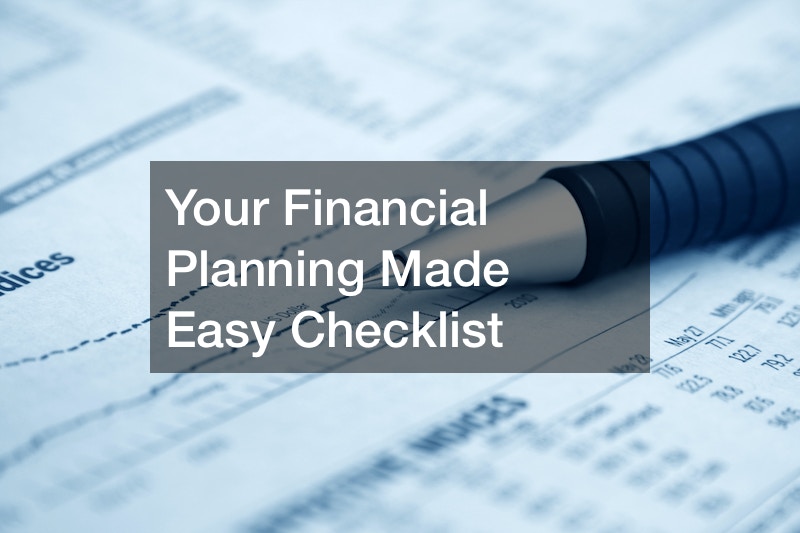
In today’s fast-paced world, finding a perfect balance between fun and responsibility can be challenging. Many people struggle with managing their finances effectively, especially when tempted by new experiences like dining at a trendy dinner restaurant, planning a spontaneous weekend getaway, or indulging in services at a med spa. However, with the right personal financial solutions, you can responsibly enjoy life while securing your financial future.
This article delves into various personal financial solutions that will help you navigate the complexities of budgeting, saving, and investing. We will explore ideas on how to allocate funds for leisure activities such as visiting restaurants, spending a night with friends at a bar, or even renting a limousine for a special occasion, while still managing essential expenses like those incurred at a beauty supply store or hotels. By adopting these strategies, you will learn how to ensure that financial stability doesn’t come at the cost of enjoying life.
1. How to Create a Sustainable Budget?
A sustainable budget is the foundation of personal financial solutions. To create one, start by tracking your income and expenses, categorizing them into fixed and variable costs. A good rule of thumb is to allocate 50% of your income to necessities, 30% for discretionary spending (like outings to restaurants or indulging in swimming classes), and 20% for savings and debt repayment.
Once you have a clear picture of your finances, it’s critical to set priorities. For example, ensure that funds are set aside not just for bills and necessities, but also for saving towards experiences, such as that handy golf cart rental for the next golf outing or a fun night out at a local bar. Regularly revisiting and adjusting your budget is essential as your financial situation evolves.
Additionally, involve your family in the budgeting process. By discussing financial goals and fun activities like a family weekend getaway, you foster a sense of teamwork in managing finances. This could even lead to creative solutions, such as pooling resources for a group trip to a hotel or planning an outing that includes both leisure and educational components, like visiting a local med spa for some self-care.

2. What Are the Best Saving Strategies?
Effective saving strategies are crucial personal financial solutions that allow you to fund both essential needs and indulgent experiences. Start by establishing a savings account that offers a competitive interest rate and is separate from your checking account to avoid the temptation to dip into savings for unplanned expenses. Aim to save at least three to six months’ worth of living expenses to create a safety net for unexpected costs.
Consider implementing the “pay yourself first” strategy, where you automatically transfer a specified amount into your savings as soon as you receive your paycheck. This approach ensures that savings become a priority rather than an afterthought, allowing funds to accumulate steadily over time. You can also create dedicated savings funds for specific goals, like a future vacation or even a special day out renting a limousine for a significant celebration.
Moreover, take advantage of apps and tools designed for personal finance, which can assist in tracking your savings progress. Set clear goals, such as saving for a stylish night out at a fancy dinner restaurant or a planned family trip to a med spa. This focused approach not only keeps you motivated but also allows for regularly assessing and adjusting your saving strategies according to your changing lifestyle and aspirations.
3. How to Effectively Manage Debt?
Debt management is a critical facet of personal financial solutions. First, assess your current debt situation by compiling a list of all outstanding balances, interest rates, and minimum payments. Understanding your total debt allows you to create an effective repayment plan, focusing on paying off high-interest debts first, which can free up funds for more enjoyable activities.
Consider consolidating your debts, which may simplify payments and could save you money in interest over time. With careful planning, you could redirect savings from reduced interest payments into fun experiences that enhance your quality of life, like booking activities at a beautiful hotel for a weekend getaway or taking your friends out for a night at a bar. Keeping a close eye on your spending will ensure you stay on track while systematically tackling your debt.
Utilize a budgeting tool or app to track your progress and celebrate small victories as you make those payments. Each time you successfully clear a debt, reward yourself with small, affordable rewards that fit within your budget, like a dinner at your favorite restaurant. Over time, these positive reinforcement strategies will not only help you overcome debt but also promote a healthier relationship with your finances.
4. What Are Smart Investment Options?
Investing is an essential component of personal financial solutions, allowing your money to work for you. Start by researching various investment options, such as stocks, bonds, or mutual funds, and consider your risk tolerance and time horizon. It’s important to create a diversified portfolio that minimizes risk while maximizing potential returns.
If you’re unsure where to start, consider consulting with a financial advisor who can provide insights tailored to your financial situation. They can help you create a plan for investing that aligns with your personal goals, whether it’s setting aside funds for future family outings, like swimming classes for your children, or saving for luxury experiences such as vacations at extravagant hotels.
Don’t overlook tax-advantaged accounts, like 401(k)s or IRAs, which can significantly impact your financial future. Regularly contribute to these accounts, as they allow for compound interest to accumulate over time. The money saved in these accounts could eventually fund enjoyable splurges, be it a weekend trip or simply indulging at a dinner restaurant without worry about financial repercussions.

5. How to Plan for Retirement?
Retirement planning is a vital aspect of personal financial solutions that ensures you can enjoy your later years. Start by assessing your current financial situation, including income sources and expenses, to establish a clear picture of what you’ll need for retirement. It’s essential to set specific financial goals that reflect your desired lifestyle, whether that includes travel, dining, or simply enjoying quiet evenings at home.
Contribute regularly to retirement accounts, such as 401(k)s or IRAs, taking full advantage of employer matches if available. The earlier you start saving, the more time your investments will have to grow. This wealth can equip you to live comfortably, partake in leisure activities, and enjoy frequent trips or outings—like a round of golf with friends using a golf cart or pampering yourself at a local med spa.
Additionally, regularly review and update your retirement plan as your life circumstances change. This may include changes in income, family size, and desired retirement age. Being flexible and proactive in your retirement planning will help ensure that you enjoy your well-earned time away from work, indulging in the activities and experiences that bring you joy.
6. What Are Practical Ways to Cut Costs?
Cutting costs is a straightforward way to enhance your personal financial solutions. Consider your regular expenditures and identify areas where you can reduce spending. For instance, dining out at restaurants can quickly add up; by meal planning and cooking at home, you can save significant money and possibly treat yourself to a more luxurious night out less frequently.
Look for subscriptions and memberships you may no longer use, such as gym memberships or streaming services. Canceling services that don’t add value to your life can free up funds for more enjoyable pursuits. Consider directing those savings into activities that excite you, like a fun outing at a bar with friends or a unique experience at a local med spa.
Lastly, take advantage of discounts and cash-back programs for your essential spending. For instance, shop at a beauty supply store that offers promotional deals or loyalty points for frequent purchases. Also, explore local events, like food festivals or community gatherings, which often provide fun experiences at little to no cost, allowing you to maintain your enjoyment without straining your budget.

7. How to Increase Your Income?
Increasing your income is a vital component of personal financial solutions that can provide extra funds for both savings and enjoyment. Consider seeking additional opportunities for overtime or promotions within your current job. This not only enhances your income but may also increase your visibility within the organization and pave the way for future advancements.
Furthermore, explore side hustles that align with your skills or passions. If you enjoy cooking, you could offer catering services for small events or even host weekend dinner parties—each guest enjoying a meal reminiscent of their favorite dinner restaurant. Alternatively, consider freelancing in areas of expertise, whether it’s graphic design or writing; this can supplement your income without a long-term commitment.
Invest in yourself by acquiring new skills or certifications, potentially increasing your earning potential in your current career. Upskilling can open up a broader range of job opportunities or advancements. Ultimately, the extra funds earned can be dedicated to leisure, whether you want to splash out on a weekend getaway or indulge in relaxing activities at a med spa.
8. What Are the Benefits of Financial Planning?
Financial planning is instrumental in crafting personal financial solutions that fit your life goals and ambitions. It provides a clear framework for managing your finances, ensuring you allocate resources effectively across your needs and wants. By outlining an actionable plan, you set measurable goals for significant expenditures, such as booking trips to hotels or planning for major life events that require a limousine rental.
Moreover, financial planning fosters disciplined spending, saving, and investing habits. It allows you to be prepared for unexpected expenses while also facilitating enjoyment through strategic expenditures—like celebrating birthdays at your favorite bar or scouting for the latest trends at a beauty supply store. By aligning your budget with your lifestyle, you’re not only working towards stability but creating opportunities to enjoy life.
Regularly revisiting and updating your financial plan is crucial, as it allows for adjustments based on life changes or new aspirations. Whether you wish to save for a family outing or a future weekend getaway, having a financial plan in place guides you towards achieving those dreams without sacrificing financial security. By prioritizing your financial health, you set the stage for a fulfilling and enjoyable life.
9. How to Balance Fun and Responsibility?
Striking a balance between fun and financial responsibility is essential for long-term happiness. Begin with a clear budget that incorporates both necessary expenses and discretionary spending. Allocating a portion of your budget specifically for leisure activities—be it dining out at your favorite dinner restaurant or treating yourself to a day at a local med spa—ensures you can enjoy life while remaining fiscally responsible.
Be mindful of your spending habits and evaluate the importance of each purchase. For example, while it could be delightful to go out for a fun night at a bar, consider inviting friends over for a casual evening instead. Not only does this save money, but it also allows for creativity and fun without breaking the bank.
Finally, encourage family discussions about fun vs. responsibilities, creating a shared understanding. By talking openly about financial goals and leisure investments, you can ensure everyone is aligned in enjoying life while being responsible. Whether it’s planning for a holiday getaway or considering renting a golf cart for a group activity, communication helps to balance these priorities smoothly.

10. How to Educate Yourself About Personal Finance?
Education is a cornerstone of effective personal financial solutions. Start by reading books and articles focused on personal finance principles, topics that include budgeting, investing, and debt management. The more you understand these concepts, the better equipped you’ll be to apply them in your life, enabling you to make informed decisions when it comes to expenses like family outings or trips to a dinner restaurant.
Take advantage of online resources, including podcasts or financial blogs, which can provide valuable insights at your convenience. Additionally, attend workshops or webinars that can offer deeper dives into specific topics such as saving for retirement or choosing the right investments. Engaging with a community of financially knowledgeable peers can help motivate your learning and provide diverse perspectives on effective money management.
Finally, consider involving your family in the financial education process. Regularly discuss personal finance topics, share learnings from resources, and even create a family challenge to save for a joint activity, like a weekend getaway. Together, you can cultivate a financially savvy household that balances fun with fiscal responsibility.
Conclusion
Remember, the objective is not only to save for emergencies but also to create experiences and memories, whether that involves treating yourself at a dinner restaurant, enjoying a weekend getaway with friends, or simply participating in leisure activities like swimming classes. With disciplined planning and informed decision-making, you can find harmony between enjoying the pleasures of life and fulfilling your financial responsibilities.



